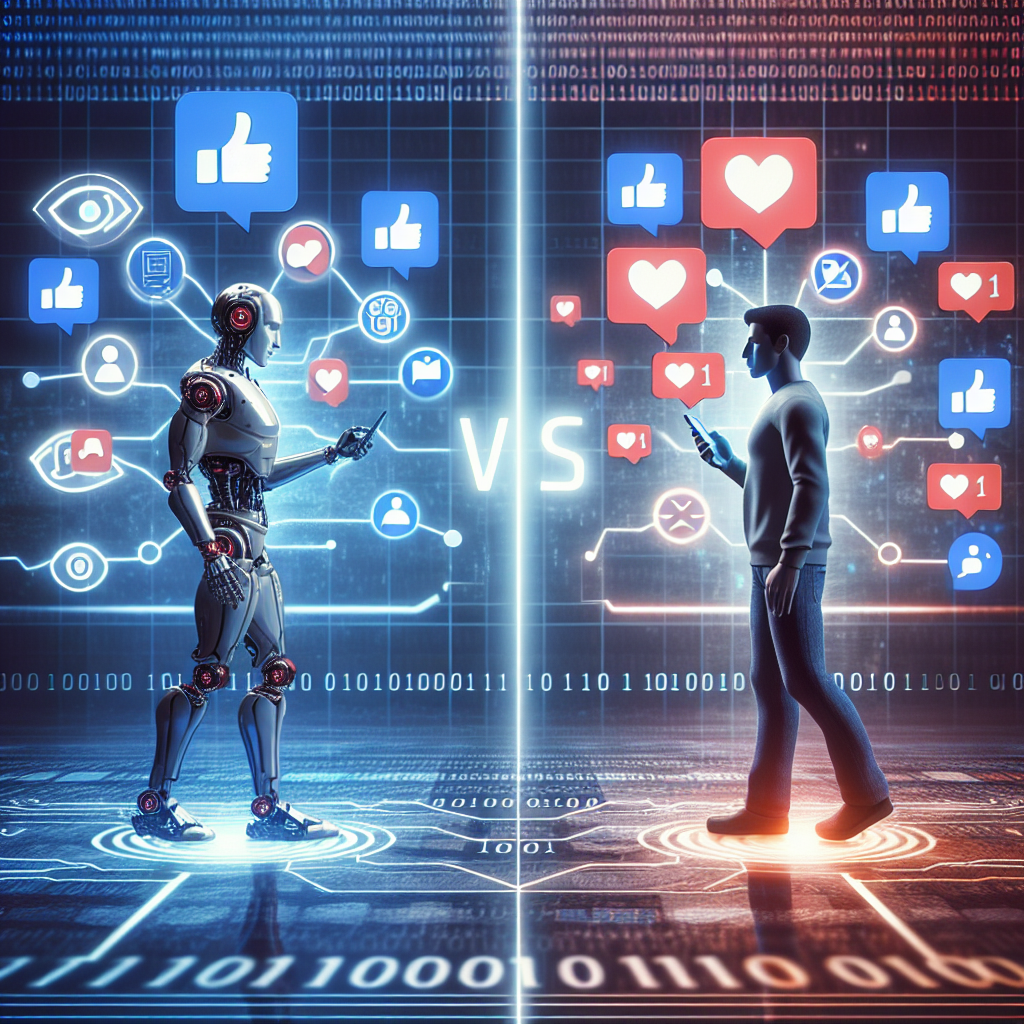In today’s digital age, social media has become an essential tool for businesses and individuals to connect with their audiences. With the rise of artificial intelligence (AI) technology, many are wondering if AI can outperform humans in social media engagement. In this article, we will explore the capabilities of both AI and humans when it comes to social media engagement and determine who is better suited for the task.
AI vs Human: Who’s Better at Social Media Engagement?
AI technology has made significant advancements in recent years, allowing businesses to automate many aspects of their social media engagement. AI-powered tools can analyze data, predict trends, and even create content, making them a valuable asset for businesses looking to streamline their social media strategies.
One of the key advantages of AI in social media engagement is its ability to process large amounts of data quickly and efficiently. AI algorithms can analyze user behavior, trends, and preferences to provide personalized recommendations and content tailored to individual users. This level of personalization can help businesses engage with their audiences on a more meaningful level, increasing the chances of conversion and customer loyalty.
AI-powered chatbots are another popular tool used for social media engagement. These chatbots can interact with users in real-time, answering questions, providing information, and even completing transactions. Chatbots can handle a high volume of inquiries simultaneously, making them a cost-effective solution for businesses looking to improve their customer service on social media platforms.
On the other hand, humans bring a unique personal touch to social media engagement that AI may struggle to replicate. Humans can convey emotions, empathy, and creativity in a way that AI algorithms cannot. This human touch can help businesses build genuine connections with their audiences, fostering trust and loyalty over time.
Humans also have the ability to adapt to changing situations and respond to unexpected events in real-time. While AI algorithms are pre-programmed to handle specific scenarios, humans can think on their feet and adjust their strategies as needed. This flexibility can be invaluable in social media engagement, especially during times of crisis or controversy.
Ultimately, the effectiveness of AI vs. humans in social media engagement depends on the specific goals and objectives of a business. AI can be useful for automating routine tasks, analyzing data, and providing personalized recommendations. Humans, on the other hand, excel at building relationships, creating engaging content, and responding to complex inquiries.
FAQs
1. Can AI completely replace humans in social media engagement?
While AI technology has made great strides in recent years, it is unlikely that AI will completely replace humans in social media engagement. Humans bring a unique personal touch and creativity to social media interactions that AI algorithms cannot replicate. AI can be a valuable tool for automating routine tasks and analyzing data, but human input is still essential for building genuine connections with audiences.
2. How can businesses leverage both AI and humans for social media engagement?
Businesses can leverage the strengths of both AI and humans by using a combination of automated tools and human interaction. AI-powered tools can help businesses analyze data, personalize content, and provide customer service, while humans can focus on creating engaging content, building relationships, and responding to complex inquiries. By combining the strengths of AI and humans, businesses can create a more effective social media engagement strategy.
3. What are some examples of AI-powered tools for social media engagement?
Some examples of AI-powered tools for social media engagement include chatbots, social listening tools, content creation platforms, and predictive analytics software. Chatbots can interact with users in real-time, providing information and assistance as needed. Social listening tools can monitor social media channels for mentions of a brand or product, allowing businesses to track trends and sentiment. Content creation platforms can use AI algorithms to generate personalized content for social media posts. Predictive analytics software can analyze data to predict trends and optimize social media strategies.
In conclusion, both AI and humans have their strengths and weaknesses when it comes to social media engagement. AI can be useful for automating tasks, analyzing data, and providing personalized recommendations, while humans excel at building relationships, creating engaging content, and responding to complex inquiries. By leveraging the strengths of both AI and humans, businesses can create a more effective social media engagement strategy that resonates with their audiences.

